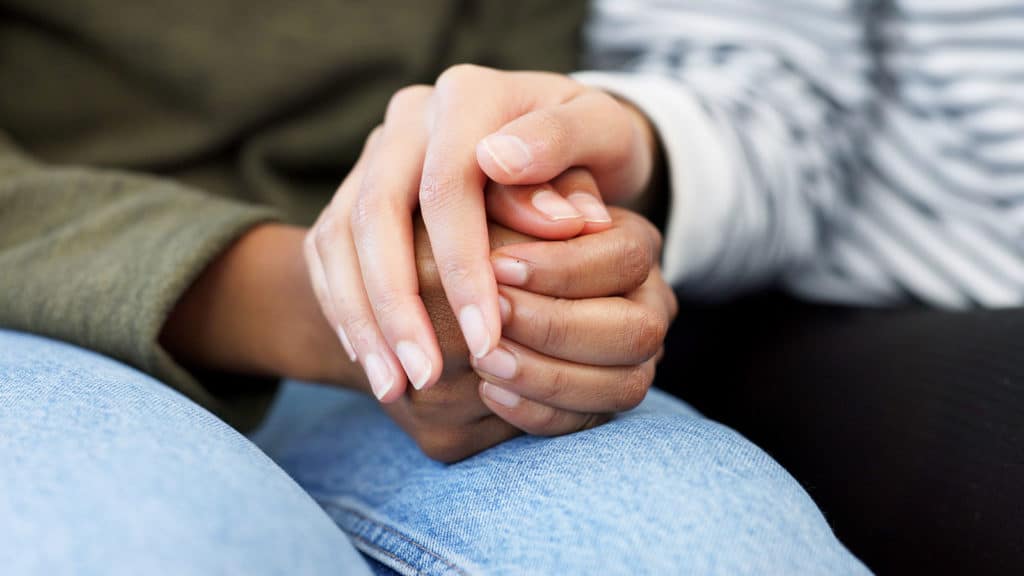Couples therapy has proven time and time again that it’s effective in strengthening any relationship – and 99% of couples currently in therapy will attest to that. In the same study, 90% of those couples spoke of the physical and mental improvement therapy caused them.
Additionally, while conflict in any relationship is inevitable (even the strongest partnerships go through them), research shows that 69% of a couple’s issues are unsolvable.
So it goes without saying that couples counseling can be beneficial. Today, we’re digging deeper into what couples therapy is, who it’s for, when to seek it, and what its benefits are. We’ll also explain the different techniques used and what to expect from your first session.

Table of Contents
Understanding Couples Therapy
Couples therapy, often referred to as marriage counseling, is a psychotherapy for helping partners in a romantic relationship. It helps improve their communication, resolve conflicts, and strengthen their connection.
This style of therapy is conducted by a licensed therapist with experience in relationship dynamics.
During sessions though, the therapist works with both individuals to explore the underlying issues causing distress. Techniques, such as active listening, role-playing, and communication exercises, are commonly used.
The goal then is to foster a better understanding between partners. These techniques help them develop healthy ways to address and manage conflicts.
Further, couples therapy is suitable for partners at any stage of their relationship – dating, engagement, marriage, or otherwise. It can be particularly beneficial for those experiencing major relationship stressors, such as infidelity, miscommunication, or a sense of growing apart.
Trust the numbers. According to the American Association for Marriage and Family Therapy (AAMFT), 98% of couples who tried therapy reported receiving good or excellent help. They also found that 93% of clients claimed that now they had the tools to deal with their problems.

When to Seek Couples Therapy
Let’s look at some situations when seeking couples therapy can help. In the long term, it’ll also improve the health and longevity of your partnership.
Frequent Conflict & Arguments
Constant disagreements can erode a relationship’s foundation. When couples find themselves stuck in a cycle of arguing without resolution, it might be time to seek couples counseling.
Therapy sessions provide a safe space to explore the underlying causes of these conflicts and develop healthier communication strategies.
Interestingly, a published study in the Journal of Marital and Family Therapy found that couples who engage in problem-solving techniques during therapy report higher relationship satisfaction.
Major Life Transitions
Significant life changes, such as moving in together, getting married, having children, or experiencing career shifts, can introduce stressors into a relationship.
Premarital counseling and ongoing couples therapy can help partners navigate these transitions, ensuring they maintain a healthy relationship amidst the changes.
Emotionally focused therapy (EFT), in particular, helps couples connect on a deeper emotional level during these times.
Emotional Disconnection
Feeling emotionally distant from your partner can lead to relationship distress. If you and your partner are experiencing a lack of intimacy, frequent disconnection, or have stopped sharing important aspects of your lives, a couples therapist can help rekindle that bond.
Therapy sessions aimed at improving emotional intimacy can significantly enhance overall well-being.
Infidelity & Trust Issues
Infidelity can be devastating, but it doesn’t have to mean the end of a relationship. Couples therapy offers a structured environment to address the pain and rebuild trust.
A couples therapist can guide partners through difficult conversations and help them develop strategies for moving forward together.
Research indicates that couples who undergo therapy after infidelity often experience an improvement in their relationship—provided they’re committed to the process.
Managing Stress & Mental Health Issues
Individual mental health issues can significantly impact a relationship. When one or both partners are dealing with stress, anxiety, depression, or other mental health challenges, couples counseling can help manage these stressors in a supportive way.
Counseling services offer tools to support each other’s mental health while maintaining the relationship’s stability.
Lack of Communication
Effective communication is crucial for a healthy relationship. If partners struggle to express their needs, desires, or concerns, couples therapy can teach them effective communication techniques.
According to a study by the American Psychological Association, couples who engage in therapy learn to communicate more openly and effectively. This leads to greater relationship satisfaction.

The Benefits of Couples Therapy
What benefits can couples reap by pouring their hearts out in counseling? Let’s take a look at some of these advantages.
A Safe Space for Communication
Couples therapy offers a safe space where partners can express their feelings and concerns openly. A skilled couples therapist facilitates productive conversations. This helps couples address relationship issues without judgment or hostility.
Enhanced Problem-Solving Skills
Through counseling sessions, couples learn effective problem-solving techniques. These skills are essential for managing relationship stressors and transitions. It fosters a more harmonious partnership in the long term.
Studies have even shown that couples therapy improves conflict resolution, thus reducing relationship distress.
Improved Emotional Connection
Therapy sessions can help couples reconnect emotionally. When disconnection occurs, relationship therapy aids in rebuilding intimacy and trust. It enhances overall well-being and mental health.
Focus on Wellness
Regular counseling sessions contribute to the wellness and well-being of both partners. Addressing relationship issues proactively can prevent minor problems from escalating into major conflicts. As a result, it promotes a healthier, more fulfilling relationship.

How Does the First Couples Therapy Session Go? What to Expect
80% of males in couples have to be pushed into therapy as they don’t believe in its efficacy.
This section should help them better understand what to expect, debunking the myth that therapy is a waste of time.
Introduction & Assessment
The therapist will typically start with assessing you as a couple. This step involves discussing the reasons you’re seeking relationship therapy and outlining your goals. The therapist will also create a safe space so you can share your experiences and perspectives openly.
Understanding Background & Dynamics
Your counselor will explore your relationship history, family background, and any previous experiences with individual therapy or family therapy. With this, the therapist better understands the dynamics at play and tailor the sessions to your specific needs.
Setting Goals & Expectations
During the initial session, the therapist helps you set realistic goals and expectations for your therapy journey. Are you seeking premarital counseling to build a healthy relationship? What about addressing ongoing conflicts? Either way, establishing clear objectives is crucial for positive changes.
Outline of Future Sessions
Finally, the therapist will outline the structure of future couples therapy sessions. It includes the frequency of in-person meetings and any additional counseling services that may be beneficial.
By the end of the session, you’ll have a clearer understanding of the therapy process. You might also gain a sense of hope for your relationship’s future.

Common Techniques Used in Couples Therapy
Different techniques work for different relationship problems. Below, we cover some of the most commonly used ones to address such issues.
Emotionally Focused Therapy (EFT)
EFT is a popular approach in couples therapy. It focuses on identifying and transforming negative interaction patterns, and fostering secure emotional bonds. Studies show that 70-75% of couples report significant improvement in their relationship after EFT, with 90% experiencing overall positive changes.
The Gottman Method
The Gottman Method is grounded in decades of research and emphasizes building a sound relationship foundation. It involves enhancing love maps, nurturing fondness and admiration, and managing conflict constructively.
According to studies, couples who practice the Gottman Method show increased relationship stability and satisfaction.
Imago Relationship Therapy
Imago Relationship Therapy aims to transform conflict into healing and growth. This technique helps couples understand each other’s childhood wounds and how these impact their relationship dynamics. It fosters empathy and connection, promoting a healthy relationship.
Integrative Behavioral Couple Therapy (IBCT)
IBCT combines acceptance and change strategies to improve relationship dynamics. It helps couples understand and accept differences while making positive changes. This technique has been shown to reduce relationship distress and enhance well-being.

Maintaining Progress After Couples Therapy
To maintain progress after couples therapy, it’s essential to continue practicing the communication and problem-solving skills learned during sessions.
Start by regularly checking in with each other to discuss feelings and address any emerging issues promptly. Consider periodic follow-up sessions with your couples therapist as well. It helps reinforce positive changes and ensure ongoing support.
Make sure to engage in activities that strengthen your bond, such as date nights and shared hobbies. Doing so helps you prioritize your relationship’s well-being. It also shows you how to be patient, understanding, and committed to continuous growth.
This ongoing effort will help sustain the healthy relationship you’ve worked hard to build.
Save Your Relationship Today
At the Illinois Recovery Center, we offer comprehensive couples therapy to help you overcome relationship challenges and build a healthier, more fulfilling partnership. Our experienced therapists provide a safe space for honest communication and effective problem-solving.
Don’t wait till it’s too late. Take the first step towards a stronger connection today. Contact us to schedule your initial counseling session and begin your journey toward a happier, more harmonious relationship.
Please contact Illinois Recovery Center to learn about Couples Therapy near you.



